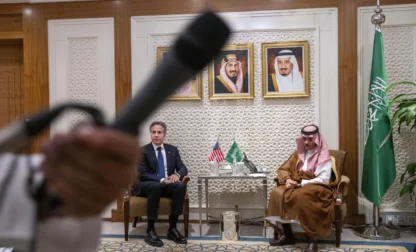NEW YORK (AP) — Global journalism organizations are urging protections for freelance and local correspondents as they face increasingly deadly dangers in the field, with the beheading of Japanese journalist Kenji Goto by Islamic State extremists the latest example.
Media and advocacy groups including The Associated Press, Reuters, Bloomberg, the BBC and the Committee to Protect Journalists announced a set of safety “principles and practices” Thursday, saying “news organizations have a moral responsibility to support journalists to whom they give assignments in dangerous areas.”
They are launching a global campaign for best safety practices for freelancers and local journalists, who “play an increasingly vital role in international coverage, particularly on dangerous stories.”
The guidelines urge news organizations to treat their regular freelance and local correspondents as they treat their staffers in safety and training, and to be prepared to take similar responsibility in case of kidnapping or injury.
“This is just the beginning, but we think it is a good start to a process of making sure freelancers are provided the respect, the dignity, the protections and ultimately the fair pay they deserve,” said Vaughan Smith, who chairs the Frontline Freelance Register, a registry of more than 500 global correspondents.
Of the 61 journalists killed around the world last year because of their work, 13 were freelancers, the Committee to Protect Journalists says. Reporters Without Borders, which has signed on to the new guidelines, lists at least seven freelancers among its own count of 69 journalists killed last year.
“Locally based journalists face by far the largest threat and endure the vast majority of murders, imprisonments and abductions,” the call for safety practices says. “At the same time, the kidnapping and murder of reporters James Foley and Steven Sotloff brought to light the growing risks faced by international freelance journalists.”
Foley and Sotloff, both Americans, were beheaded by Islamic State group militants last year.
“As journalists face ever-increasing risks to gather the news that the world needs, it is vitally necessary to put in place best practices to keep them as safe as possible to do their jobs,” said Kathleen Carroll, the AP’s executive editor.
The principles urge news organizations to give freelancers “prompt payment” and fair recognition in addition to being aware of freelancers’ needs for training, insurance and safety equipment.
“I think it’s really important that fair and prompt payment is being addressed because, apart from everything else, it also impacts on our safety,” said Balint Szlanko, a freelancer and Frontline Freelance Register board member. “I rely on being paid a decent fee to cover the high expenses of conflict reporting, and in time, so that I don’t have to cut corners on my next trip.”
The principles also urge journalists working in dangerous areas to obtain the basic skills to care for themselves or injured colleagues; to have safety equipment, training and insurance; and to have a planning and communications strategy with news organizations while on assignment. They should also engage in a strict risk assessment with their editors, measuring the journalistic value of the story against the dangers they may face.
The guidelines represent a set of agreed principles and practices for safety among more than two dozen news organizations and media-related groups, said John Daniszewski, AP senior managing editor for international news. “These issues must be at the forefront of editors’ and journalists’ thinking before an assignment is made, so that the important work of gathering news can continue,” he said.



